Covering Ground
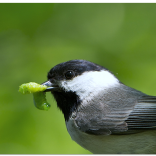 Birds, Butterflies, Toads, Turtles: Won't You Be My Neighbor?
Birds, Butterflies, Toads, Turtles: Won't You Be My Neighbor?
Many of us remember chasing fireflies on summer nights as children. In our family, it was a Fourth of July ritual. Others wistfully recall listening to hoot-owls, and finding frogs, toads, turtles, newts, salamanders, and, yes, snakes.
Are they gone forever, like childhood? They don't have to be. There are eight ways we can be better neighbors:
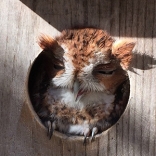 For better tick control, begin with nature
For better tick control, begin with nature
Question: What animals below prey on tick-carrying white-footed mice and other tick-carriers?
A. Owls, hawks, and other birds of prey
B. Foxes, bobcats, fishers
C. snakes
D. opossums
E. all of the above
 Reduce, Reuse, Recycle When Starting Seeds
Reduce, Reuse, Recycle When Starting Seeds
Our New England growing season is only six months long, but the plastic pots, trays and liners that hold our short-lived plants may last for decades. If you would like to change the footprint of your gardens, consider your options.
(Also see the 2022 article: After the Flowers Are Planted.)
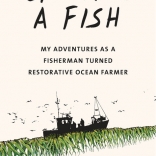 Book review: “Eat Like a Fish"
Book review: “Eat Like a Fish"
Long Island Sound fed Native Americans for millennia before settlers arrived, and it feeds us today. Unfortunately, today’s fish and shellfish harvests are minnow-sized compared to days gone by.
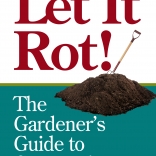 Compost Holiday Items? Easier Than You Think
Compost Holiday Items? Easier Than You Think
Forgive me, please, if it seems quirky to suggest that bright, merry, and yummy seasonal items are candidates for the compost bin, pile, bag, or tumbler.
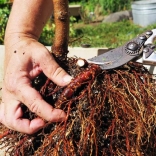 Roots Get an Image Makeover
Roots Get an Image Makeover
Roots may lack charisma, but the hidden half of the plant world is getting new attention. Roots are natural carbon-hoarders--and carbon is a hot commodity these days.
That’s a convenient truth, especially in autumn. Like chipmunks and squirrels, roots begin adding to their stores in late summer.
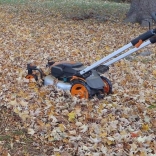 Rethinking Leaves
Rethinking Leaves
Have you turned a new leaf when it comes to land care? Many people have. For instance, we plant for pollinators, choose native plants, reduce lawn sizes, and use electric equipment instead of gas-powered. Most of those changes take place within the confines of our properties without attracting negative attention.
The same is not always true for autumn leaves.
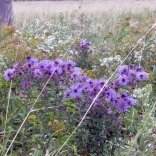 25 Late-Blooming Native Plants for Birds, Bees, Butterflies
25 Late-Blooming Native Plants for Birds, Bees, Butterflies
It's easy to dream of flowers in early spring and summer. But let's not forget that bees, butterflies, moths, and other pollinators need pollen and nectar from flowers during the fall months, almost until first frost. Birds, of course, need seeds and berries all year.
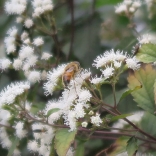 Some native plants get aggressive
Some native plants get aggressive
We’ve had a bit of rain this year, and most plants are acting like giddy teenagers after a six-pack of energy drinks. That includes native plants.
Who’d have thought a native plant would fail to mind its manners? In fact, when some natives get aggressive, they outcompete non-native invasive weeds. In the horticultural world, this quality is sometimes called “competitive exclusion.”
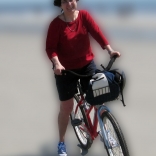 A Feel-Good Moment With a Poignant Personal Note
A Feel-Good Moment With a Poignant Personal Note
I drove past lots of parking lots filled with attendees at local graduations in June. Every year, the sight triggers a memory about June 1975. That year, I was a recent graduate of Penn State’s English program and I was riding across campus on my squeaky three-speed bicycle. I rode by an event at the agriculture school and decided to stop.
